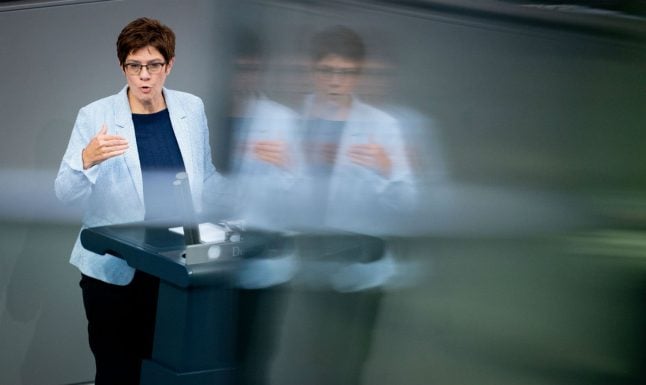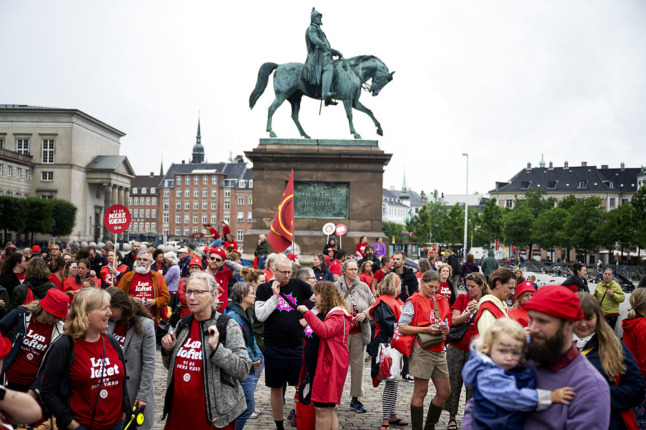Following Trump's remarks that he will go to the Supreme Court to stop ballots from being tallied, Kramp-Karrenbauer told public broadcaster ZDF “this election has not been decided… votes are still being counted”.
She said Trump could create “a constitutional crisis in the USA”, calling such a scenario “something that must deeply concern us”.
The minister, who is also head of Chancellor Angela Merkel's Christian Democratic Union party, said it appeared “the battle over the legitimacy of the result, however it turns out, has begun”.
She admitted that the German-US relationship had faced “a tough test in the past four years” with fierce Trump criticism of Berlin over trade and military spending.
However, she said, “this friendship is more than a question of which administration is currently in the White House”, saying she dismissed calls in Germany to “decouple ourselves from the United States”.
But Kramp-Karrenbauer stressed that regardless of the ultimate outcome of the US vote, Europe would need to become more self-sufficient.
“We will have to do a lot more for our own interests — both as Germany and in particular with the other Europeans,” she said.
Finance Minister Olaf Scholz echoed the sentiment, saying that given the developments in the United States, Europe needed to strengthen its own “sovereignty” so that “a rules-based global order can exist”.
“That is why we need to take this opportunity to make Europe strong,” he told reporters in Berlin.
German Foreign Minister Heiko Maas (SPD) has not yet commented on the ongoing vote tally Wednesday, but on election day Tuesday expressed his desire for fair and democratic elections.
“I hope that what we have learned from the Americans will happen: that the rules of democracy will be accepted by everyone, tweeted Maas.
Am #ElectionDay wünsche ich mir, dass eintritt, was wir von den Amerikanern gelernt haben: dass die Regeln der Demokratie von allen akzeptiert werden. Dazu gehören nicht nur strahlende Sieger, sondern auch gute Verlierer. Die Kultur eines zivilen Umgangs unter Demokraten.
— Heiko Maas ?? (@HeikoMaas) November 3, 2020



 Please whitelist us to continue reading.
Please whitelist us to continue reading.
During Obama’s time, there was spying on the German Government. The usual Trump derangement syndrome.